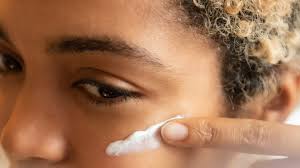10 Tips to Get Rid of Body Acne: An Extremely Detailed Guide
Body acne, also known as bacne, is a common skin condition that affects many people, often during adolescence but can also occur in adulthood. Unlike facial acne, body acne appears on the back, chest, shoulders, arms, and sometimes even on the buttocks. It occurs when hair follicles become clogged with excess oil, dead skin cells, and bacteria, leading to the formation of pimples, cysts, or blackheads. Body acne can be caused by a variety of factors, including hormonal fluctuations, sweat, poor hygiene, certain clothing materials, and even stress.
While body acne can be frustrating and can impact your confidence, the good news is that it is treatable. Below, we break down 10 detailed tips to help you manage and reduce body acne.
1. Shower Regularly, Especially After Sweating
Why It Works:
Sweat and dirt accumulation are one of the most common causes of body acne. When sweat, oil, and bacteria mix with dead skin cells, it can clog pores, leading to breakouts. Therefore, it's essential to wash away sweat as soon as possible, especially after exercise or hot weather.
Sweat and dirt accumulation are one of the most common causes of body acne. When sweat, oil, and bacteria mix with dead skin cells, it can clog pores, leading to breakouts. Therefore, it's essential to wash away sweat as soon as possible, especially after exercise or hot weather.
How to Do It:
- Shower within 30 minutes of sweating. The longer sweat stays on your skin, the greater the chances of acne.
- Use lukewarm water instead of hot water. Hot water can strip your skin of natural oils, leading to overproduction of sebum, which can exacerbate acne.
- Choose a gentle, non-comedogenic body wash formulated for acne-prone skin. Look for products with salicylic acid or benzoyl peroxide, as they are effective acne-fighting ingredients.
- Shower within 30 minutes of sweating. The longer sweat stays on your skin, the greater the chances of acne.
- Use lukewarm water instead of hot water. Hot water can strip your skin of natural oils, leading to overproduction of sebum, which can exacerbate acne.
- Choose a gentle, non-comedogenic body wash formulated for acne-prone skin. Look for products with salicylic acid or benzoyl peroxide, as they are effective acne-fighting ingredients.
Product Suggestions:
- Cleansers with Salicylic Acid: Helps to exfoliate the skin and unclog pores. Good for treating both body acne and preventing new breakouts.
- Benzoyl Peroxide Washes: Reduces acne-causing bacteria on the skin.
- Cleansers with Salicylic Acid: Helps to exfoliate the skin and unclog pores. Good for treating both body acne and preventing new breakouts.
- Benzoyl Peroxide Washes: Reduces acne-causing bacteria on the skin.
2. Exfoliate Regularly (But Gently)
Why It Works:
Exfoliation helps to remove dead skin cells, dirt, and excess oils that can clog pores, leading to body acne. However, it's crucial not to over-exfoliate, as this can irritate your skin and make acne worse.
Exfoliation helps to remove dead skin cells, dirt, and excess oils that can clog pores, leading to body acne. However, it's crucial not to over-exfoliate, as this can irritate your skin and make acne worse.
How to Do It:
- Exfoliate 2-3 times a week with a gentle exfoliant to remove dead skin cells and prevent clogged pores.
- Use a loofah or an exfoliating mitt to help massage the exfoliant into your skin and improve circulation.
- For a natural option, you can try DIY sugar scrubs (mix sugar with coconut oil or honey) or a paste of baking soda and water.
- Exfoliate 2-3 times a week with a gentle exfoliant to remove dead skin cells and prevent clogged pores.
- Use a loofah or an exfoliating mitt to help massage the exfoliant into your skin and improve circulation.
- For a natural option, you can try DIY sugar scrubs (mix sugar with coconut oil or honey) or a paste of baking soda and water.
Product Suggestions:
- Exfoliating Body Scrubs with Alpha Hydroxy Acids (AHAs) or Salicylic Acid: These ingredients gently remove dead skin cells, which can clog pores.
- Microdermabrasion Scrubs: Use fine exfoliating particles to gently buff away dead skin and smooth the skin surface.
- Exfoliating Body Scrubs with Alpha Hydroxy Acids (AHAs) or Salicylic Acid: These ingredients gently remove dead skin cells, which can clog pores.
- Microdermabrasion Scrubs: Use fine exfoliating particles to gently buff away dead skin and smooth the skin surface.
3. Wear Loose, Breathable Clothing
Why It Works:
Tight or synthetic clothing can trap sweat, oil, and bacteria against your skin, creating a perfect environment for acne-causing bacteria to thrive. Fabric materials that don’t allow your skin to breathe can also cause irritation, leading to body acne.
How to Do It:
- Opt for loose-fitting clothing that allows air to circulate freely around your skin.
- Choose fabrics like cotton, linen, or moisture-wicking materials that help your skin breathe and wick sweat away.
- Change out of sweaty clothes immediately after exercise to avoid trapping bacteria and sweat on your skin.
Product Suggestions:
- Moisture-Wicking Activewear: Great for athletes or anyone who sweats a lot. These fabrics pull sweat away from the skin to reduce irritation and acne.
4. Use Acne Treatment Creams or Gels
Why It Works:
Over-the-counter acne treatment products contain active ingredients like benzoyl peroxide, salicylic acid, and retinoids that target the causes of acne. These products help to reduce inflammation, kill acne-causing bacteria, and prevent clogged pores.
How to Do It:
- After showering and exfoliating, apply a thin layer of benzoyl peroxide or salicylic acid gel directly to the affected areas.
- Be consistent with treatment—apply it once or twice a day depending on the severity of the acne.
- If your acne is more severe, you may need a prescription-strength treatment. Consult with a dermatologist for recommendations.
Product Suggestions:
- Benzoyl Peroxide Creams/Gels: These are effective at killing acne-causing bacteria and reducing inflammation.
- Salicylic Acid Lotions: Helps to exfoliate the skin and clear out blocked pores.
- Adapalene Gel (Differin): A retinoid that promotes cell turnover and prevents clogged pores.
5. Maintain a Healthy Diet
Why It Works:
Certain foods can trigger or worsen acne, including sugary foods, dairy products, and processed foods. Eating a balanced diet rich in antioxidants, vitamins, and minerals can help improve the health of your skin.
How to Do It:
- Increase your intake of fruits, vegetables, and whole grains. These foods are high in vitamins and minerals that support healthy skin.
- Limit your consumption of sugar and dairy if you suspect they trigger your acne. Some studies have suggested that dairy, especially milk, may be linked to an increase in acne in some individuals.
- Drink plenty of water to help keep your skin hydrated and flush out toxins.
Food Tips:
- Omega-3 Fatty Acids: Found in foods like salmon, chia seeds, and walnuts, omega-3s have anti-inflammatory properties that can help reduce acne.
- Antioxidants: Berries, leafy greens, and green tea are rich in antioxidants that fight oxidative stress, which can contribute to acne.
6. Stay Hydrated
Why It Works:
Drinking enough water is essential for maintaining the health of your skin. Hydrated skin is less prone to dryness, which can lead to clogged pores and acne.
How to Do It:
- Aim to drink at least 8 glasses (64 oz) of water daily to keep your skin hydrated from within.
- Avoid sugary drinks and sodas, as they can worsen acne and dehydrate the skin.
Hydration Tips:
- Consider drinking herbal teas like green tea or chamomile, which also have anti-inflammatory properties that may benefit acne-prone skin.
- Carry a reusable water bottle to make it easier to stay hydrated throughout the day.
7. Avoid Touching Your Skin
Why It Works:
Touching your skin can transfer oils, dirt, and bacteria from your hands to your skin, which can clog pores and cause acne.
How to Do It:
- Be mindful of your habits—avoid touching your body, especially your back and shoulders, unnecessarily.
- Keep your hands clean by washing them regularly, and avoid leaning on your hands or resting your arms on your face or back.
8. Use Non-Comedogenic Skincare Products
Why It Works:
Non-comedogenic products are formulated to not clog pores, which is essential for preventing body acne.
How to Do It:
- Make sure that any body lotions, sunscreens, and other skincare products you use are labeled non-comedogenic (meaning they won't clog pores).
- Choose products with ingredients like tea tree oil or niacinamide, which are known to have acne-fighting and anti-inflammatory benefits.
Product Suggestions:
- Non-comedogenic moisturizers: Helps to hydrate the skin without causing breakouts.
- Oil-Free Sunscreens: Prevents clogged pores while protecting your skin from UV damage.
9. Use a Body Spray with Tea Tree Oil
Why It Works:
Tea tree oil is a powerful natural antiseptic that helps to reduce acne-causing bacteria on the skin. It also has anti-inflammatory properties that can soothe irritated skin.
How to Do It:
- Use a tea tree oil body spray or create your own by mixing a few drops of tea tree essential oil with water in a spray bottle.
- Spray it directly on the acne-prone areas, such as your back or chest, after showering.
- Tea tree oil can be drying, so be sure to follow up with a hydrating moisturizer if your skin feels too dry.
10. Consider Seeing a Dermatologist
Why It Works:
If your body acne is persistent, severe, or causing scarring, it might be time to consult with a dermatologist. A professional can provide personalized treatment options, including prescription medications or professional therapies like chemical peels or laser treatments.

.jpg)

.jpg)






Post a Comment